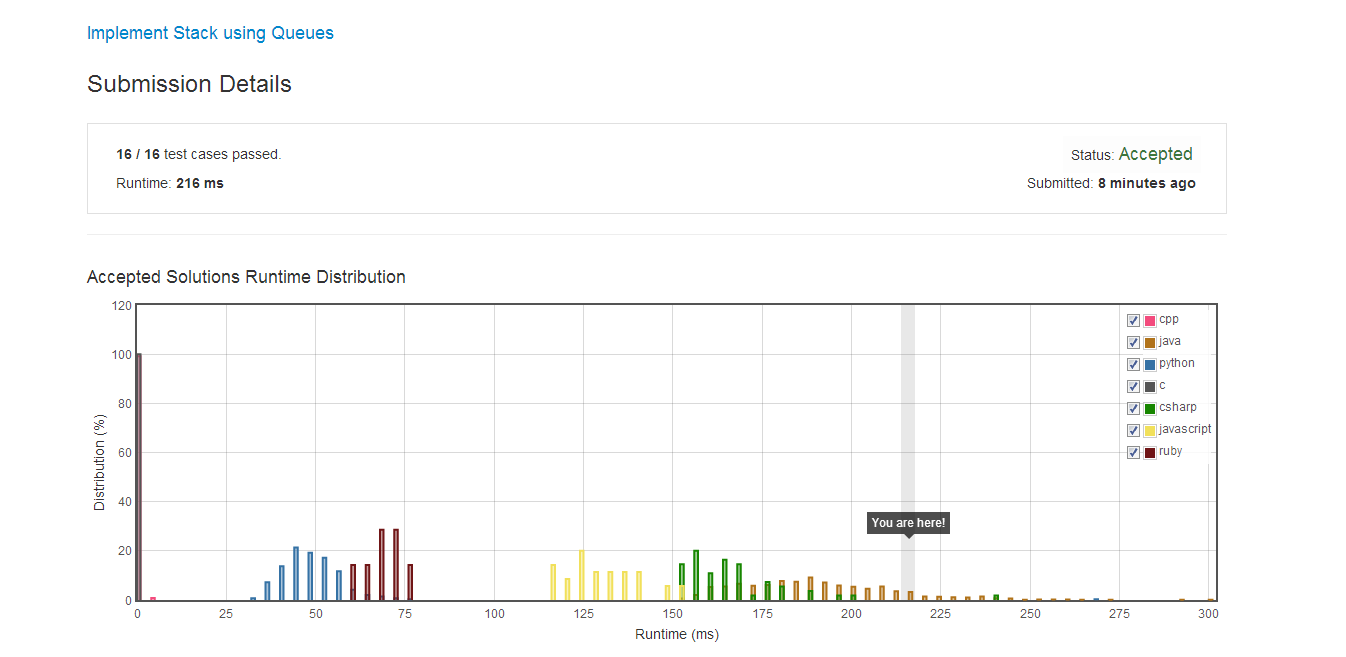Implement the following operations of a stack using queues.
- push(x) -- Push element x onto stack.
- pop() -- Removes the element on top of the stack.
- top() -- Get the top element.
- empty() -- Return whether the stack is empty.
Notes:
- You must use only standard operations of a queue -- which means only
push to back,peek/pop from front,size, andis emptyoperations are valid. - Depending on your language, queue may not be supported natively. You may simulate a queue by using a list or deque (double-ended queue), as long as you use only standard operations of a queue.
- You may assume that all operations are valid (for example, no pop or top operations will be called on an empty stack).
Update (2015-06-11):
The class name of the Java function had been updated to MyStack instead of Stack.
Credits:
Special thanks to @jianchao.li.fighter for adding this problem and all test cases.
解析:java 中,Queue接口可使用的函数有 offer(E e):添加到队列尾 peek():查看队列头 poll():删除队头元素 remove()移除队头元素
另外:Deque接口中的push(),pop()操作均是在队头操作。
代码如下:
class MyStack {
// Push element x onto stack.
Queue<Integer> q1=new LinkedList<Integer>();
Queue<Integer> q2=new LinkedList<Integer>();
public void push(int x) {
q1.offer(x);
}
// Removes the element on top of the stack.
public void pop() {
while(q1.size()>1) q2.offer(q1.poll());
q1.poll();
Queue<Integer> q=q1;
q1=q2;
q2=q;
}
// Get the top element.
public int top() {
while(q1.size()>1) q2.offer(q1.poll());
int x=q1.poll();
q2.offer(x);
Queue<Integer>q=q1;
q1=q2;
q2=q;
return x;
}
// Return whether the stack is empty.
public boolean empty() {
return q1.isEmpty();
}
}
运行结果:
